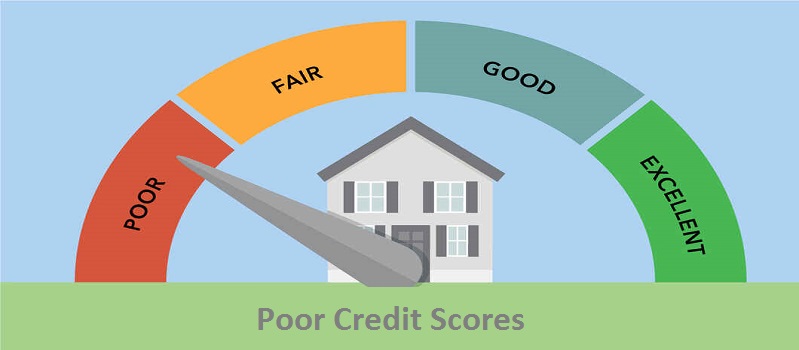For many individuals, a car is the most valuable asset that they own or want to own. Therefore, financial setbacks become the primary concern as they fear losing the car. It is particularly true when you need a car to drive your financial troubles.
Losing a car in those times makes the financial concerns worse. Here, individuals lose not just their cars but also their vital income source.
However, many individuals do not own a car in the beginning. According to a Financial Leasing Authority review, “People purchase around 81% of new cars with a car finance agreement.” It implies people check Hire Purchase or Personal Contract Purchase quotes to buy a car. These agreements require an individual to pay a monthly instalment to cover the car costs. Thus, car finance agreement payments prove to be the second largest expense of any household after rent.
If someone buys a car through a car finance agreement, they usually do not own it until they make the final payment. Missing or skipping payments may mean car repossession. Individuals may struggle to continue payments because of sudden unemployment, business loss, or legal matters. Regardless of the reason, the car finance company takes action.
Actions a car finance company takes on missed payments
If you do not pay or skip your car finance payments, you may enter a rift with the lender. It is because missing payments means a contract breach. However, some car finance providers may help the borrower by analysing his circumstances and developing a suitable solution.
However, the worst thing you can do is ignore the lender’s reminders and payment emails. In that case, the following may happen:
1) You receive an arrears notice
The car finance provider sends you a notice revealing the dues as arrears that you owe on the agreement. If you cannot afford the amount, the lender proceeds with repossession.
2) Charges late payment fee
With every missed payment, you attract penalty fees. It increases overall dues on a loan. Moreover, it also raises the interest costs, making it unaffordable for you. You can generally spot missed payment charges on the agreement before signing the contract.
3) Receive a default notice
If you do not respond to arrears notice, your lender may send you a default notice. With this notice, you will have 14 days to clear the dues before the agreement termination. If you cannot do so, the lender may take action.
4) Vehicle repossession
As mentioned above, the provider may proceed with vehicle repossession if you cannot pay the dues timely.
Additionally, the lender may issue a court order if you pay less than one-third of the amount as car finance. It further damages your credit score.
Thus, it is a wise decision to avoid such actions by paying the dues on your car finance agreement. Check the guaranteed online loans facility if you have a minimal amount as dues. It is ideal for individuals with a low credit history and consistent income. You may get it instantly if you meet the basic conditions.
What you must know regarding actions and repossession?
Well, missing payments may put you in a tight spot regarding car ownership. The lender may proceed with car repossession and court matters. However, you must know a few things before this begins:
- You will need to miss at least two payment deadlines before repossession begins.
- Paying less than one-third of the total amount may lead to immediate repossession without a court order.
- The lender usually sells the vehicle at the auction to recover the loss
- He may ask you to pay the balance if the sale does not cover the entire amount.
After repossession, the lender provides you with a time order. It allows for covering the missed payments over some time and keeping the hold of the car.
What steps do you take next if you cannot continue car finance payments?
Now, you know the consequences and the facts regarding missing the car finance payments. If you cannot continue payments but are seeking a solution, the following tips may help:
1. Contact your car finance provider
The first step is to contact your lender if you know you will miss the payment again. Explain your situation and check whether they have any solution. Mostly, loan providers analyse the payment pattern of the borrower and provide a suitable payment plan. He may also assist you with pausing payments for some time. It all depends on the lender and the situation you face.
It is especially possible if you took guaranteed car finance on benefits payments. Lenders understand that with an unstable payment schedule, you may miss payments. However, clear the dues with the personalised payment plan. Meanwhile, check the best ways to improve your income through part- or full-time earning modes.
2. Refinance your car loan
It implies changing your existing car finance terms to a better and more affordable option. It helps you refinance your loan to lower interest rates and monthly payments. Sometimes, the lender provides the option to settle the figure. It means buying the car outright. From there, you may get a refinancing quote. Compare your new loan options.
3. Part-exchange the car for a cheaper option
If your car is no longer feasible and financing is not an option, swap it for a cheaper option. However, moving to a new agreement implies a settlement fee. However, if your car’s value is less than the settlement fee, pay the difference. It is negative equity. Under this, you can swap your car to a lower alternative with the outstanding balance.
Alternatively, you can trade your existing vehicle at a dealership. You can sell the vehicle privately, using the proceeds to pay off the remaining balance. However, contact your lender for a better alternative.
4. Return the car
If you pay around 50% of the amount on the PCP and HP car finance agreement, you can return the car. It is also known as the voluntary termination of the agreement. However, think about this decision carefully, as not having a car for daily use may impact your lifestyle. Additionally, terminating the car finance agreement may impact your credit score.
Bottom line
Financing a car is a long-term commitment. Thus, understanding the basics of what you can afford and what you cannot is essential. It will help you know whether the agreement fits your budget perfectly. Is your financial status strong enough to continue payments for the long term? If not, you must wait and work on your finances and credit score. It will help you complete the car finance agreement without skipping payments.

Emma Anderson is a financial advisor at Quickloanslender who always believes in researching hard to know her clients’ financial problems. She takes the time to understand their financial wants and needs to write the blogs on them as the solutions. In her long 14 years of experience, she has written plenty of blogs on the financial and business sectors of the UK.
Emma Anderson has been recognised for her work in financial planning and her blogs are regularly published in the website of Quickloanslender. As far as her educational qualification is concerned, she has done Masters in Accounting and Finance, and done PG Diploma in Creative Writing.






